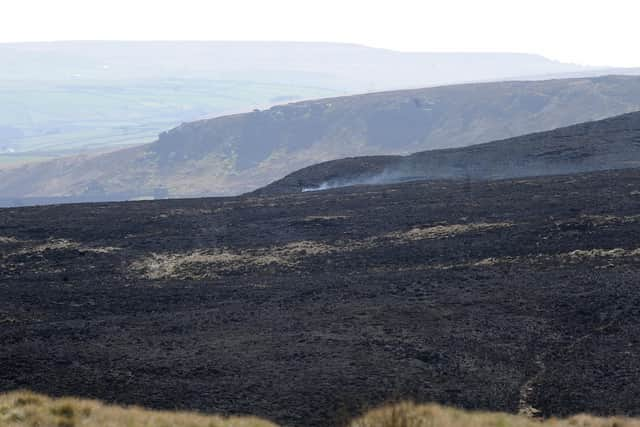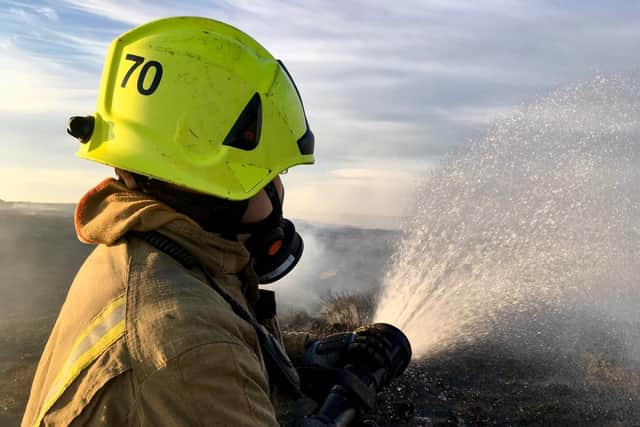Yorkshire's moorlands currently a "powder keg" at risk from wildfires
A wildfire warning is in place for the region over the Bank Holiday weekend as recent dry weather means upland areas such as Marsden Moor and Ilkley Moor are extremely vulnerable.
Gamekeepers have described the moors as a "powder keg", warning that "split second" decisions such as discarding a cigarette butt could have catastrophic consequences.
Advertisement
Hide AdAdvertisement
Hide AdMoorland managers meanwhile have said that milder winters and summer heatwaves as a result of global warming mean increased risks of fires, which then in turn release tonnes of carbon dioxide into the atmosphere.


A recent report found that a fire at Saddleworth Moor in June 2018 spread pollution to five million people, and research by Moors for the Future found that a fire in August of the same year on the Roaches in the Peak District released 11,430 tonnes of CO2 – the equivalent of powering 1,426 homes for a year.
Fire services last month also warned of the dangers of lanterns, saying the impact of wildfires on emergency services would be felt more than ever due to the current coronavirus pandemic.
Amanda Anderson, Director of the Moorland Association, has echoed warnings to refrain from visiting the moors.
Advertisement
Hide AdAdvertisement
Hide AdShe said: “We are all becoming restless under Covid-19 restrictions, but it is essential we continue to follow official guidance and stay away from the moors.


"It only takes one split-second decision to discard a cigarette butt or light a barbeque or dump some rubbish, but it has the potential to cause huge damage.
"There is no point in making significant gains in carbon emissions through peatland restoration or environmentally friendly living if we then allow our uplands to regularly catch ablaze, belching vast amounts of carbon dioxide into the atmosphere."
Last month, fires were recorded at Marsden Moor in West Yorkshire, which was thought to have been started by a barbeque, moorland in Calderdale and at Ilkley Moor.
Advertisement
Hide AdAdvertisement
Hide AdThey came during what was confirmed by the Met Office as the sunniest April on UK record, with 40 per cent less rain than average.
Ms Anderson added: “Global wildfire experts have already warned that if things continue with the lack of management of vegetation it will only be a matter of years before the UK is unable to effectively handle wildfires. Clever land management rather than emergency firefighting will ultimately will win the day, they warn us.
“Land managers must be allowed to utilise careful controlled burning – undertaken during the winter months, which removes much of the potential fuel and ensures fire breaks in the vegetation, whilst leaving the underlying peat soils, moss layer and carbon intact.
"As these burns - when undertaken correctly - only release carbon that was locked up over the lifetime of the plants, the process is largely carbon neutral and can even allow for greater carbon gains as the underlying mosses thrive when the canopy above them is removed.”